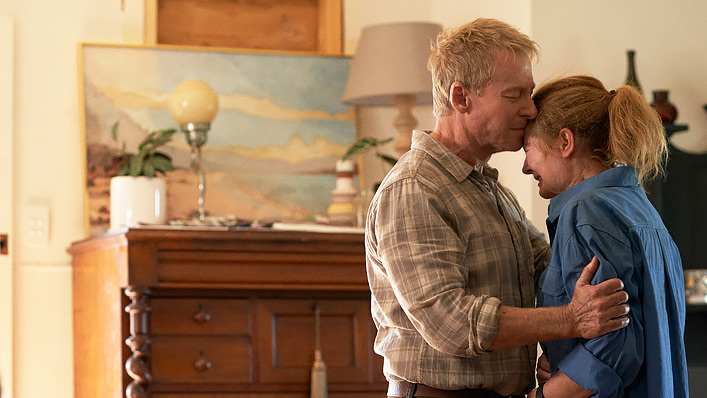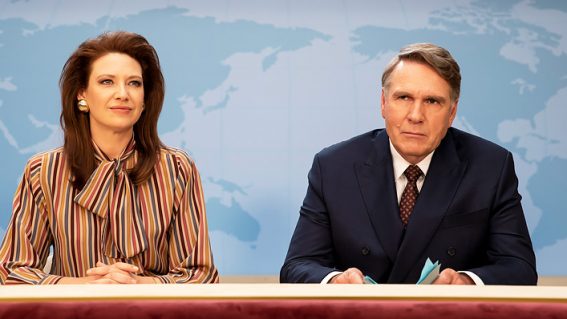Fires reduces a national tragedy to the level of a soap opera

Exploring the catastrophic Black Summer bushfire season, the ABC’s six-part anthology series uses a period of international significance as a backdrop for some pretty ordinary dramatics, writes Travis Johnson.
When Justin Kurzel’s Nitram was announced, the cry “too soon!” was quickly raised on social media, the notion being that 25 years was not a long enough period between mass murderer Martin Bryant’s killing spree in Port Arthur and a film about the incident. If Fires, the ABC’s new six-part anthology series, attracted a similar hue, it was muted, which is odd considering the show is set during the tragic and devastating Black Summer bushfires of 2019-2020, which saw a good part of Australia’s eastern bushland go up in smoke, along with a lot of property and lives.
See also
* The best Australian films of 2021 so far
* All new streaming movies & series
The received wisdom behind “too soon!” is that fictionalising tragic events could be seen as disrespectful or triggering for survivors and the bereaved, but there’s another, more practical reason, as a creator, to give yourself some distance: you may not yet have the perspective needed to encompass the cultural, social, political and personal impact of the event at hand. So it is with Fires, which takes a period of not just national but global significance and uses it as a backdrop for some pretty ordinary dramatics.
You can feel the good intentions: the drive to forge something that pays tribute to the heroic firefighters who risked all that summer, the people who lost so much, to depict the scale of the disaster in a meaningful, visceral way that no news coverage can capture. But it’s beholden to a self-imposed timetable: producer and co-creator, along with Belinda Chayko, Tony Ayres (Cut Snake, The Home Song Stories) has spoken about his desire to see the series released before this coming fire season, but a short production schedule has resulted in a final product that feels under-developed.
The first episode, set in Queensland in September 2019, introduces us to two characters who will link almost every subsequent episode: Tash (Eliza Scanlen), a volunteer firefighter of five years’ experience, and Mott (Hunter Page-Lochard), a fumbling fresh recruit. On a call out to deal with a bush fire they are separated from their unit and forced to shelter in their vehicle as the fire front sweeps over them.
Scanlen and Page-Lochard are two of our finest young acting talents and do a lot with the material at hand. Also he recreation of an aggressive bushfire, which utilises an LED rear production system similar to that used in The Mandalorian, is very impressive. Yet something rings false: the personal drama seems forced, the repeated, awkward attempts to showcase notions of mateship and everyday courage fall flat.

The second episode fares somewhat better, with Richard Roxburgh and Miranda Otto as a dairy farming couple whose property has been gutted by fire realising that their adult son is not coming home, and negotiating a new relationship dynamic with his partner Brooke (Taylor Ferguson).
As a portrait of grief, it’s quite powerful and director Anna Kokkinos (along with Kim Mordaunt and Michael Rymer, one of three on the project) does her best to allow her actors room to emote, but it falters in the little narrative details: an interloping journalist framed as a villain, a cringey moment where Otto’s character yells at a neighbour’s kid she is convinced lit the fire. These are clearly attempts to distill some of the discourse around the fires to specific dramatic situations, but they’re executed too obviously to be effective.
Those two episodes were all that were made available for review and so we have to extrapolate from limited data, but based on the material at hand it seems clear that Fires takes the most obvious, least graceful and insightful path to telling its stories. Characterisation is thin; although the excellent cast (Anna Torv, Sam Worthington, Kate Box, Noni Hazlehurst, Mark Leonard Winter, Daniel Henshall, Sullivan Stapleton and more crop up in later episodes) do what they can, they’re forced to try and breathe life into roles that are written as types, not characters. The dialogue is perfunctory, the emotional beats on the nose.
All this stems, I think, from a desire to mythologise the fires and our response to them; to take the real stories uncovered in the research process and elevate them to the level of the universal. Unfortunately, that’s a tough ask, and even missing by millimetres can leave your well-intentioned drama mawkish and awkward, as is the case here. Fires feels like pastiche; a series more about how we want to view that summer and our reactions to it than the actual truth. It’s clear the series views itself as Important Television, but in execution it only rarely rises above the level of soap opera.

















